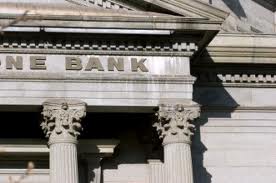A mortgage broker wrote to me today and asked,
"George, I still have a handful of clients needing funding for their commercial projects ranging from $5 million to $454 million, but they have little to no cash reserves whatsoever. Moreover, most have been burned in the past by scam artists or by unscrupulous brokers charging upfront fees with no capabilities of funding a loan at all. So my question here is this…. Do my clients have a chance at getting any funding at all, or are they all just dreamers with good ideas?"
My answer is a clear and unequivocal,  "No. These deals do not have a snowball's chance in hell of funding."
"No. These deals do not have a snowball's chance in hell of funding."
There are only a few occasions when an institutional commercial lender will make a commercial loan today:
1. If a borrower keeps hundreds of thousands of dollars on deposit with his own bank, he can use that deposit relationship to twist the arm of his own banker to make him a loan.
2. The borrower is buying an REO from a bank for 60% of the property's 2006 value. Then a commercial lender will make a loan of 60% of the actual purchase price, if the buyer is putting 40% in cash down.
3. A bank is discounting an existing commercial loan to its existing borrower by 40% to get the loan off its books.
4. A builder in a primary market (Washington, DC; New York City, Boston, Chicago, San Francisco or Los Angeles) is contributiong 40% to 45% of the total project cost in cash, prepaid development costs, and equity in the land.
5. An investor is refinancing a loan of at least $5MM on one of the four major food groups (multifamily, office, retail, industrial) in a primary market (see above). In this scenario, a conduit will probably be the lender. Conduits are coming back into the market, but only for very attactive deals.
6. Everything else will probably have to be funded by a private money (hard money) lender.
7. As Porky Pig would say at the end of one of those old-time Loonie Tunes cartoons, "That's all, folks." These are the only types of commercial loans that are regularly getting funded these days.
Now I have a question for you (I wrote to this young mortgage broker). What on EARTH are you doing trying to broker commercial loan larger than $2 million when you are new to commercial real estate finance?!!! Even if you found a perfect loan - and finding a perfect deal is never gonna happen - you still couldn't place it because you don't have the relationships with the loan officers at the big banks that close deals of this size.

You need to work on small commercial loans. Remember these words, "Big commercial deals never close (unless you have a full pipeline of small deals and you don't need the commission). Small commercial loans close."
| Do you simply need to get a commercial loan funded today, even if you have to go to a lender that is more expensive than a bank? If so, please come to C-Loans.com and enter your request. Over 750 different commercial lenders participate on C-Loans. If your deal is do-able, you can get it funded using C-Loans.com. And C-Loans is free! |

 "Look, our regulators are concerned about your commercial loan. We know your commercial real estate loan is current right now, but the vacancy rate for commercial space in your area is pretty high. Here's what we're going to do. Right now you owe us $5 million. If you pay us off in the next 90 days, we'll accept just $3.5 million."
"Look, our regulators are concerned about your commercial loan. We know your commercial real estate loan is current right now, but the vacancy rate for commercial space in your area is pretty high. Here's what we're going to do. Right now you owe us $5 million. If you pay us off in the next 90 days, we'll accept just $3.5 million." The buyer was prepared to put 25% down and was seeking a loan of 75% LTV to buy a former nursery in order to grow legal, medical marijuana.
The buyer was prepared to put 25% down and was seeking a loan of 75% LTV to buy a former nursery in order to grow legal, medical marijuana. The Federal government is a huge employer, and government employment is growing.
The Federal government is a huge employer, and government employment is growing. 
